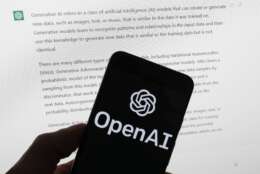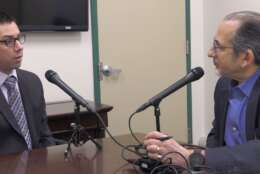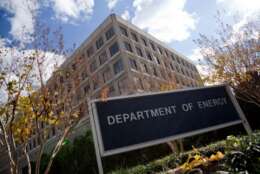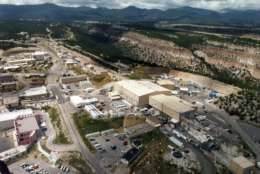Hubbard Radio Washington DC, LLC. All rights reserved. This website is not intended for users located within the European Economic Area.
Open Data/Transparency
-
Modern digital tools, powered by IT, have become an integral part of our daily lives. These technologies have changed how we perform various tasks such as accessing information, planning trips, conducting business and communicating with others.
April 03, 2023 -
ChatGPT, Anyword, Midjourney. These are among the most popular content generators powered by Artificial Intelligence. But when there's no human hand behind the creation, what rights does the user of an AI tool have when it comes to copyrighting those sometimes strange images and writings? Well to help answer some of those questions, the U.S. Copyright Office is launching a new initiative to lay out just where its policies stand, and to also hear from the people using generative AI technologies.
March 31, 2023 -
A whole new world is coming to the federal government: a virtual world. Thanks to advancements in artificial intelligence, the internet of things, 5G, and more, augmented and virtual reality — commonly called "extended reality" (XR) — is transforming how agencies deliver services, train warfighters, conduct operations in the field, and operate remotely.
March 08, 2023 -
The government routinely collects data, including citizens' sensitive personally identifiable information, ranging from Social Security details to financial information to healthcare data. They need it to do their job and deliver the services they are obligated to provide.
March 06, 2023 -
After the major Thrift Savings Plan update last June, officials from Accenture Federal Services said they have made progress to resolve widespread issues for participants, but are still focused on “continuous improvements.”
March 01, 2023 -
Airport security screening is in large measure a function of detection of objects and materials. A recurring challenge comes from non-commercial explosives — dangerous substances cooked up by criminals for unknown reasons.
February 17, 2023 -
The Transportation Security Administration (TSA) is constantly generating new screening requirements, equipment that can sense or detect something and sound an alarm if need be. It falls to the Homeland Security Department's Transportation Security Laboratory (TSL), operated by the Science and Technology Directorate, to work with TSA and potential vendors to evaluate-and-test a particular technology.
February 16, 2023 -
The Conflict Observatory brings together teams and technology to track the conflict in Ukraine. The project sprung out of evidence-based policymaking efforts.
February 13, 2023 -
You know when you're using an app that uses GPS in a major city, and it can't quite pin point your location? Well, a new tech company in San Francisco may have a new way of fixing that.
February 13, 2023 -
It might be the biggest thing in computing since the microprocessor. But quantum computing doesn't come with guaranteed security. Among the challenges, developing cryptography algorithms that resist quantum computing.
February 02, 2023 -
Federal agencies face an incredible threat as ransomware attacks continue to evolve and attackers grow more and more evasive.
January 30, 2023 -
Whatever the country's energy future will turn out to be, it will require advances in science and technology. That's where my next guest comes in.
January 27, 2023 -
A near decade-long project to upgrade the IT systems agencies use to schedule and transfer records to the National Archives is close to coming to fruition.
November 16, 2022 -
Scientists from China work on sensitive projects at the Los Alamos National Laboratory, then go back to help China with what they've learned.
November 14, 2022
ASK THE CIO

THURSDAYS @ 10 & 2 p.m.
Weekly interviews with federal agency chief information officers about the latest directives, challenges and successes. Follow Jason on Twitter. Subscribe on Apple Podcasts or Podcast One.
















